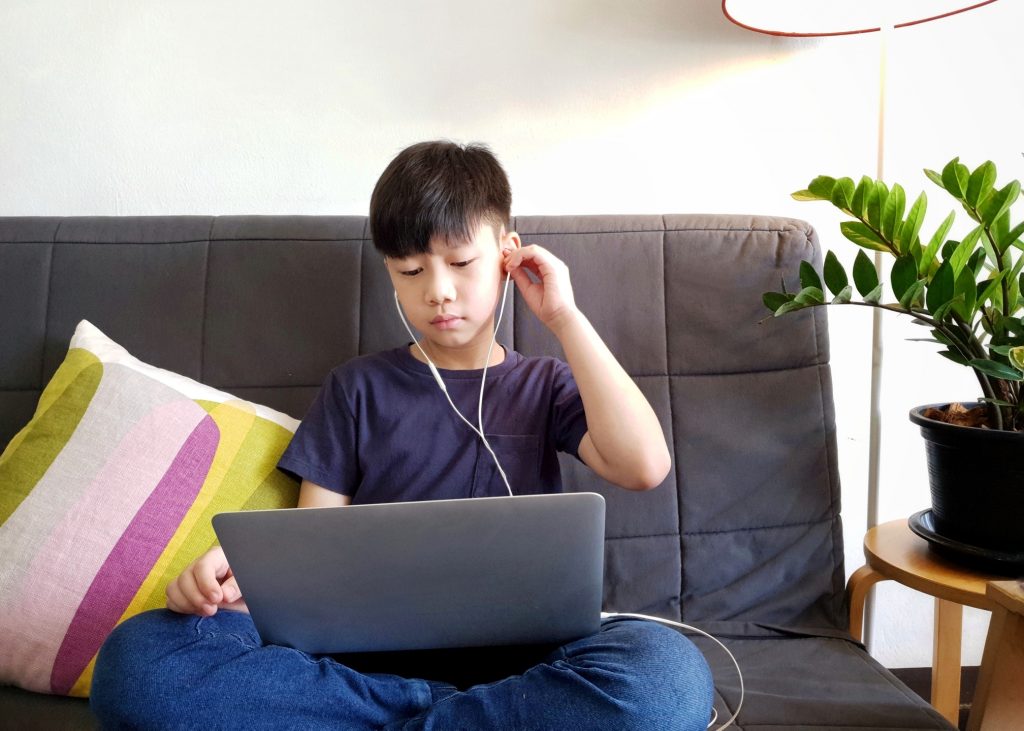How do you get started with teletherapy?
Teletherapy is away to provide remote, secure and private counseling using videoconferencing technologies. We can offer all of our services via Telehealth. Some of the services we are offering via secure and private video conferencing include but are not limited to:
Intake appointments and initial assessments to begin counseling or therapy with new families
Continuing or ongoing therapy – Including Parent Support, CBT, PCIT, TF-CBT, Family Therapy, Infant Mental Health, and Therapy for pregnant and postpartum Women.
The idea of starting services online or switching to a video format can feel daunting or unusual for some. Rest assured that we have experience using this teletherapy for all types of treatment we provide. For many of the evidence-based treatments that we offer there is also evidence that they can be just as effective when delivered remotely via Telehealth. We will help guide you in getting everything set up to make this type of service delivery possible for you and your family. During a time of social distancing, or perhaps limited transportation, or living in an area where access to mental health providers is limited Teletherapy is an excellent way to begin or resume therapy.
Call 269-615-7637 to schedule a teletherapy appointment today.

Is teletherapy effective? Does it work? Does it work as well as therapy in the office?
- Internet therapy or teletherapy works very well compared to in-office therapy. We see this in our clinical practice as well as in the peer-reviewed published research studies.
- It is a smooth process to transition to virtual appointments for most children and families. We always have a backup plan if the technology fails.
What do I need to get started with Telehealth?
- Electronic device: You can use any computer, tablet or smart phone with video and audio capabilities.
- First intake session with parents only: You won’t need an ear bud but may use one if you like. Your regular speaker on your device will be fine.
- Ear piece for parent coaching sessions when child is present: It is helpful to have a Bluetooth ear piece that can connect to your device, or ear buds or standard headphones that can plug into your device to allow for more privacy during your session when we are coaching you while you are working directly with your child.
Software:
- We use a HIPAA compliant platform that is integrated into our electronic healthcare record for teletherapy sessions. The software we use has end-to-end encryption, which means it is *very* secure. Our software does not record your session. Unless there is an agreement between the family and therapist our teletherapy sessions are not stored, or recorded in any format.
- We will send you a link to our private, secure telehealth room in advance of the actual session.
- The platform we use functions best using Google Chrome as your web browser.
- Click here to learn more preparing for a telehealth session with your therapist or counselor.
PCIT Telehealth Sessions
Structure of an Teletherapy PCIT coaching session is:
- We first need to review and score your forms if you did not return them ahead of time or if we could not score them ahead of time.
- Please set your child up with a toy or someone to be with them so we can do our “check in” undisturbed for approximately 5-10 minutes.
- Check-in time
- We’ll ask you about stressors unrelated to the parent training, to get a sense of other factors affecting your family life
- We’ll talk about your Special Play Time (SPT) practice for the past week
- Coding: We’ll code for 5 minutes while you use the PRIDE skills in the CDI play. The clinician will not be speaking during this time.
- Coaching: We’ll coach the first parent for approximately 15 minutes (coaching will last longer if only one parent is participating in the session.)
- Coding and Coaching for second parent: Coding and coaching will then be conducted with second parent for families with two parents/caregivers participating
- Debrief/check-out: We’ll discuss our observations of the session and plan what to work on in the coming week.
Telehealth set up:
- We will provide you with a Telehealth link by email or text message.
- The link will be for the computer/phone in the play area. This computer/phone should be placed where there will be a clear view of the play area. If you are concerned your child will be bothered or distracted by seeing themselves on the screen, please cover the screen with a paper/book. Make sure the camera is clear.
- Pair your bluetooth headphones to computer/phone to directly communicate through the Telehealth program without your child being distracted by hearing us. If Bluetooth headphones are not available, we can have you turn off the volume on the computer and use regular headphones in your phone, where the clinician will call you to coach you.
- Once you enter the Telehealth session, turn on the volume and video.
Preparations if our internet connection drops: It’s important that we have a Plan B if our internet Telehealth connection drops or fails for any reason. Your clinician will create a back-up plan with you of what to do if this happens. It’s important that we have a way to reach each other if the connection fails.

